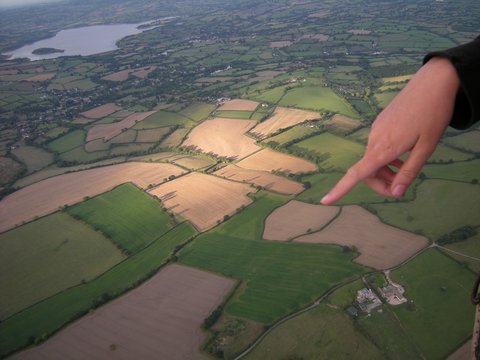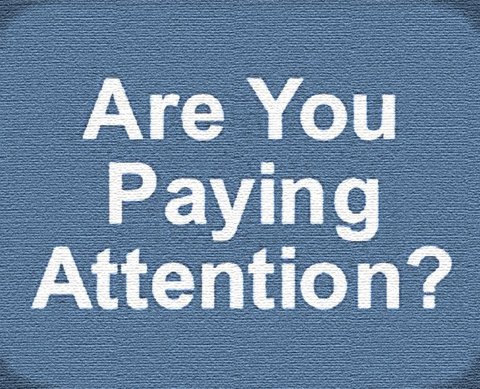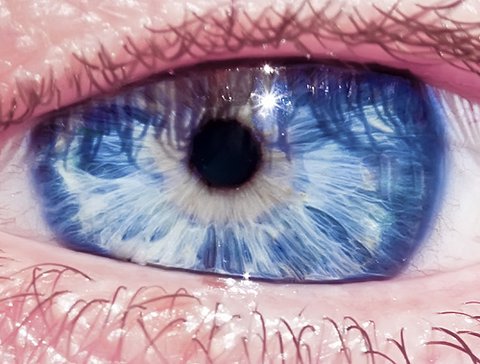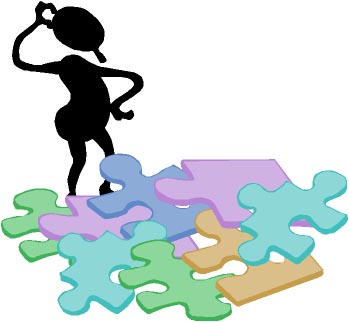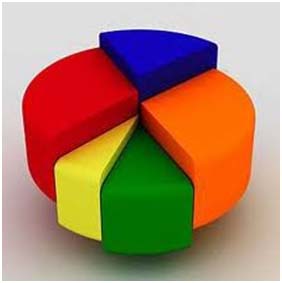
This disc represents me (or you).
The blue raised segment is my general sense of who I am in the world and the way that I usually appear and behave; my identity as I and others tend see it.
This segment of this disc has formed due to a range of influences. When I was young, as a consequence of the other people around me I learnt to behave in particular ways. These were usually ways that met the spoken and unspoken requirements of the adults and children around me. An easy example of this is that I grew up in a middle class family in Liverpool, my parents made sure I didn’t speak with a scouse accent because they thought it wasn’t ‘appropriate’, as a consequence I now have a neutral accent.
As I grew I also learnt that I liked people to like me and also to think I was competent and relaxed – so I behaved in ways that drew those responses. I saw friends who wanted people to think they were rebellious or different, so they behaved in a manner that led people to view them that way.
At any given time in our lives we will be being ‘us’ in a way that elicits particular responses from the people around us.
When working, I turn up for meetings clean shaven and reasonably smartly dressed. My preferred state is unshaven and sloppily dressed, but at work I find it easier, usually, to meet other people’s expectations rather than set up an immediate potential barrier.
In the circle above, the blue area represents the ‘me’ that usually appears in the world.
So my question is - what’s in the other parts of the circle?
In my case a few of these sectors contain things like, the man who had a long term conflict with his dad, the man who cries easily, the man who paradoxically gets lonely and also doesn’t want to be around other people, the man who knows he is right – and lots more.
These other segments contain bits of me that I don’t always pay a lot of attention to. Some of these bits I know quite well but I am certain there are plenty that I don’t even know exist (the unknown unknowns).
What happens often when we are in conflict or under stress is that we leak.
Bits of us that are not normally on display (the other segments) start to appear in our day-to-day behaviour.
Due to our ‘blue’ identity being under pressure our usual identity can’t quite manage the new situation and other bits of us leak from the more hidden aspects of ourselves into our visible behaviour. We usually don’t notice this as it is happening, but fortunately – or not - other people do.
Ever had someone you know come up to you and say ‘what’s going on, are you okay?’ You may say ‘I’m fine’, you might tell them in detail or you may get angry with them and say ‘of course I’m okay, why are you asking’.
The reason they have asked in the first place is because you have been leaking. They have seen a part of you that is often under wraps; you don’t seem like ‘you’.
We all leak, some of us recognise it more than others. Sometimes when others tell us we are leaking we may get upset, or we may be grateful; it may feel like an attack or a gift.
To manage our own conflicts it helps if we get clear about our leakage – the parts of us that want to say hurtful things, attack others, run away or burst into tears. If we know these bits exist then there is less chance that they will unconsciously leak.
Knowing these facets doesn’t mean to say we will be perfectly at ease all of the time but we will be better able to take responsibility for ourselves and the impact we have.
If I am feeling ikky (to use the technical term), I may not know why but I will probably be noticing that something is going on. The way that I can take responsibility is by letting people around me know that I’m not okay. I might say ’I’m feeling ikky and it’s possible that I will be leaking unintentionally’ or just, ‘something’s not okay in me, watch out’.
Naming what is going on makes the leak visible and helps other people to not feel that it is something they have caused. It can also provide an opportunity for me to look at a bit of me that I might sometimes shy away from.
If you are with other people and you notice that they are leaking you can help them to notice it. Do it gently, the idea is to help them not to criticise them - remember you may need help to mop up your leaks one day.

